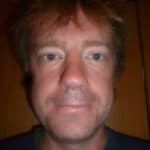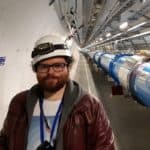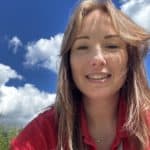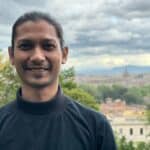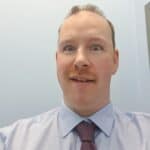Profile
Richard Caley
-
About Me:
I retired from the NHS after 40 years of service as a Clinical Scientist in neurosciences working in teams alongside Occupational Therapists, Speech and Language Therapists, Psychologists and Physiotherapists. I loved working within a hospital community providing expertise in all areas of the hospital and outlying community serving the most vulnerable and disadvantaged members of society.
I now write Court Reports for Clients, who have suffered catastrophic injury through no fault of their own and are seeking compensation in an attempt to restore their lives.
I love playing classical piano, contemporary worship songs with other musicians and studying digital and natural media art.
-
Read more
I am a Chartered Clinical Scientist (CS00337) registered with the Health and Care Professional Council (HCPC), and a Corporate Member of the Institute of Physics and Engineering in Medicine (IPEM). I have over 25 years’ professional experience working in an acute hospital with regional specialties in Spinal Injury, Burns and Neurosciences. I worked alongside Consultants in Rehabilitation and Spinal Injuries providing technological solutions to meet the needs of patients with severe neurological disorders. In my NHS role I led multi-agency, multidisciplinary therapy teams in a community setting, assessing clients for assistive technology. I am a recognised authority in rehabilitation and assistive technology and have chaired IPEM’s Special Interest Group in Rehabilitation & Biomechanical Engineering. I am a Trustee Director of Spine (CIO), a patient support organisation at the Yorkshire Regional Spinal Injury Centre, and a Trustee Director on the charitable board of Second Chance, Headway Centre, Wakefield and a member of the UK Acquired Brain Injury Forum.
As a professional Clinical Scientist, I have specialist knowledge in rehabilitation engineering, assistive technology, physiological measurement, and phrenic nerve respiratory pacemaker implant technology for the ventilation of high lesion quadriplegics. This knowledge provides the skills with which I assess patients for specialist wheelchair controls, telecare and telemedicine technology. My expertise in assistive technology enables me to professionally recommend, manage and support environmental control systems, communication aids, computer access and rehabilitation engineering solutions to patients with severe movement and cognitive impairment.
I have 10 years experience supporting a video fluoroscopy cystometry department treating spinal injury and community patients with urinary problems.
I am a pianist and artist with experience in digital midi instruments and computer art forms which mimic real media, with a view to enabling quadriplegics to re-engage with former passions in the creative arts.
I am a strong advocate for the use of Mindmanager mind-mapping software for life management through the storage, retrieval and retention of important knowledge.
I am an Expert Witness in Assistive Technology with over 10 years experience in writing Court reports for Personal Injury and Major Trauma Law Firms in the UK.
-
My pronouns are:
He/Him
-
My Work:
Clinical Scientist (Rehabilitation) and Expert Witness (Assistive Technology): I recommend equipment and devices that help disabled people who have been injured in accidents.
-
Read more
I like to work for solicitors who are seeking compensation for the Client who has suffered catastrophic injury. I read many Court Reports from other Experts detailing the Client’s injuries before making my recommendations of assistive technology to the Court.
-
My Typical Day:
Having semi-retired I usually play the piano on a morning, have lunch and start working at 2pm. I stop around 6pm and like to unwind in the evening watching Netflix. I spend some of the evening looking at e-mails detailing new advances in Science and Technology that may be useful to my Client base.
As a Physicist I’m interested in the thoughts of Roger Penrose, a distingushes British Mathematician and Physicist who was awarded a Nobel Prize in Physics for his understanding of black holes in cosmology. I’m more interested in his work on human consiousness and it’s links to quantum machanics in the brain. I understand only a little on the topic of quantum mechanics but am looking for scientific evidence that conciousness may continue into the afterlife.
-
What I'd do with the prize money:
Show students how the creative arts and science and technology can be a fusion for greater wellbeing.
-
Education:
Cockburn High School, Dewsury Road Leeds, (9 x O-levels, 3 x A-levels, Maths, Physics, Chemistry)
1974: BSc. (Hons 2.1), Electrical & Electronic Engineering, Birmingham University
1997: MSc. Medical Physics, Leeds
2006 Post Graduate Certificate in Health Research Leeds University
-
Work History:
2003 – 2017: Principal Clinical Scientist (Rehabilitation), Specialist in Assistive Technology Leeds Teaching Hospitals NHS Trust, Mid Yorkshire Hospitals NHS Trust, Wakefield
1982 – 2003: Senior Medical Physicist, Pinderfields General Hospital, Rehabilitation Engineering & Physiological Measurement
1980 – 1982: Research Assistant (Home Office), Dept. of Forensic Medicine, St James’ University Hospital Leeds
1974 – 1980: Medical Physics Technician, Dept. Medical Physics, St James’s Hospital Leeds
-
Current Job:
Expert Witness in Assistive Technology
-
Employer:
Self Employed: Company Name: Assistive Technology Solutions
-
My Interview
-
How would you describe yourself in 3 words?
Creative Arts Scientist
What did you want to be after you left school?
Work in the Health Care Profession as an Electronic Engineer
Were you ever in trouble at school?
All the time. The Chemistry teacher swore at me when I handed in my A-level paper for not yet having written my name on the top.
If you weren't doing this job, what would you choose instead?
No other job. I've loved the hospital community and working with others in multidisciplinary teams.
Who is your favourite singer or band?
Jacob Collier
What's your favourite food?
Apple crumble and custard
If you had 3 wishes for yourself what would they be? - be honest!
A much improved artist, pianist and to have a better memory
Tell us a joke.
Why was the maths book sad? Because it had too many problems!
-

